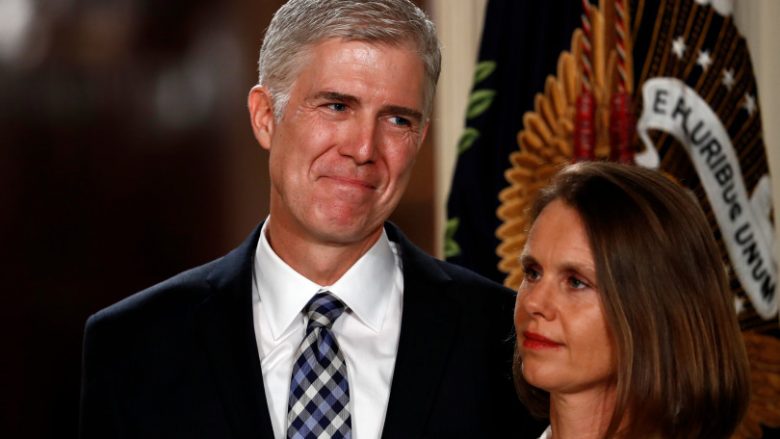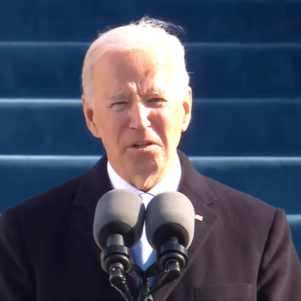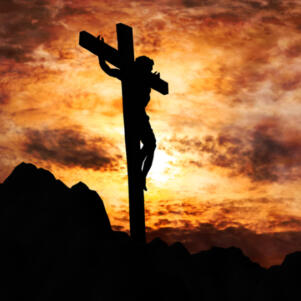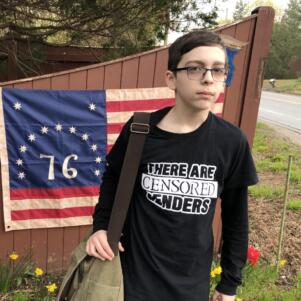WASP Nominee for Supreme Court Would Restore Diversity
By Dwight Duncan | February 1, 2017, 20:21 EST
 Judge Neil Gorsuch stands with his wife Louise as President Donald Trump speaks in the East Room of the White House in Washington, Tuesday, Jan. 31, 2017, to announce Gorsuch as his nominee for the Supreme Court.(AP Photo/Carolyn Kaster)
Judge Neil Gorsuch stands with his wife Louise as President Donald Trump speaks in the East Room of the White House in Washington, Tuesday, Jan. 31, 2017, to announce Gorsuch as his nominee for the Supreme Court.(AP Photo/Carolyn Kaster) For most of its history, the United States Supreme Court has been composed of White Anglo-Saxon Protestants.
True, there was the occasional Catholic, like 19th century Chief Justice Roger Brooke Taney, forever tainted by his notorious Dred Scott decision; or early 20th century Chief Justice Edward White. Eventually there was talk of a “Catholic seat” on the court, occupied oddly enough by Justice William Brennan, an appointee of President Dwight Eisenhower, who later deeply regretted his choice.
And beginning with Justice Louis Brandeis, appointed by President Woodrow Wilson, there was a “Jewish seat,” occupied by Justice Felix Frankfurter followed by Justice Arthur Goldberg followed by Justice Abe Fortas. (President Lyndon Johnson tried to appoint Fortas chief justice but he had to withdraw because of ethical concerns.)
But now the Supreme Court is all Catholics and Jews. Ever since the retirement of Justice John Paul Stevens in 2010, there hasn’t been a single Protestant on the Court. (This in a country still dominated by Protestants; Catholics and Jews together make up only about half the number of Protestants.) Before the death of Justice Antonin Scalia last February, the count was six born-Catholics and three Jews. Had President Barack Obama’s nomination of Judge Merrick Garland been confirmed by the U.S. Senate, the count would have been five born-Catholics and four Jews.
Now, with President Donald J. Trump’s nomination on Tuesday night of Judge Neil Gorsuch of Denver’s U.S. Court of Appeals for the Tenth Circuit, the historical anomaly may be lessened. For Judge Gorsuch is an Episcopalian of English heritage, a true WASP. (To be fair, he did go to Georgetown Preparatory School in suburban Maryland, a Jesuit school that some of my nephews also went to; but that just makes him ecumenically aware.)
Since Gorsuch sat on the federal appeals court for over a decade, he has an extensive judicial record. He has an expansive view of religious freedom, as I experienced when I worked on friend-of-the-court briefs in a couple of cases he dealt with as a judge. The Hobby Lobby and Little Sisters of the Poor cases, which made it to the U.S. Supreme Court, first had stops at the federal appeals court Gorsuch serves on. Both these cases dealt with religiously inspired conscientious objection to Obamacare’s contraceptive mandate, which required employers to provide free contraceptive coverage.
Hobby Lobby is an evangelical-run arts and crafts company. (Not a mainline Protestant entity such as Episcopalian.) The Green family, which owns the company, sued the federal government over the contraception mandate, arguing that some contraceptives cause abortion and that paying for them would violate their conscience, which they claimed should be protected under the First Amendment and the federal Religious Freedom Restoration Act.
Judge Gorsuch ruled in favor of Hobby Lobby. (That’s the same way the U.S. Supreme Court would eventually rule, 5-4, with Justice Anthony Kennedy, the justice Gorsuch once clerked for, being the swing vote.)
At the lower court Judge Gorsuch wrote a concurrence which maintained that under the Religious Freedom Restoration Act the Green family was entitled to religious freedom from the contraceptive mandate:
“No doubt, the Greens’ religious convictions are contestable. Some may even find the Greens’ beliefs offensive. But no one disputes that they are sincerely held religious beliefs [emphasis in original]. … The Act doesn’t just apply to protect popular religious beliefs: it does perhaps its most important work in protecting unpopular religious beliefs, vindicating this nation’s long-held aspiration to serve as a refuge of religious tolerance.”
Similarly, when the Tenth Circuit ruled against the Little Sisters of the Poor, a Catholic religious order of nuns that care for the impoverished elderly, Judge Gorsuch sided with the nuns. He joined in the dissent from the denial of a rehearing en banc by the entire federal appeals court:
“The opinion of the panel majority is clearly and gravely wrong — on an issue that has little to do with contraception and a great deal to do with religious liberty. When a law demands that a person do something the person considers sinful, and the penalty for refusal is a large financial penalty, then the law imposes a substantial burden on that person’s free exercise of religion. All the plaintiffs in this case sincerely believe that they will be violating God’s law if they execute the documents required by the government. And the penalty for refusal to execute the documents may be in the millions of dollars. How can it be any clearer that the law substantially burdens the plaintiffs’ free exercise of religion?”
In both these cases, Judge Gorsuch did not share the parties’ religion, but ruled according to the dictates of the law. He also ruled in favor of a Muslim inmate’s being able to raise religious freedom in requesting halal foods in prison in a case in 2010, and also in favor of a Native American inmate raising religious freedom in seeking access to the prison’s sweat lodge in 2014.
So given his broadmindedness when it comes to religion, maybe turnabout is fair play. Perhaps now is the time for a Protestant seat on the U.S. Supreme Court. Affirmative action for WASPs!
Dwight Duncan is a professor of constitutional law at University of Massachusetts School of Law in Dartmouth, Massachusetts.











